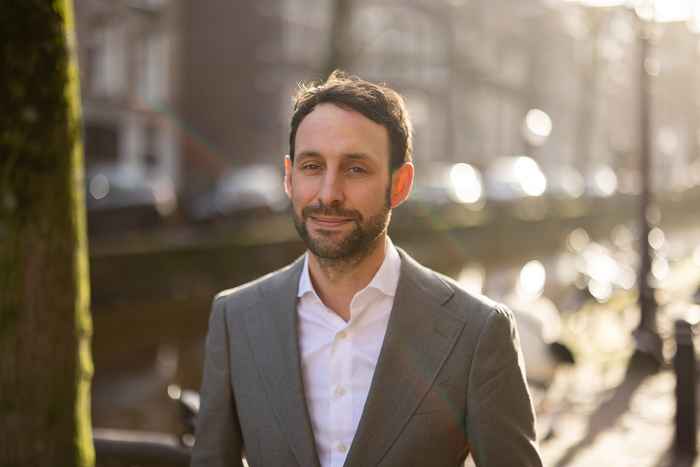Peter van Dam appointed professor of Dutch history
30 January 2024
‘We need a new history of the Netherlands’, says Van Dam. ‘A lot of new research has appeared about globalisation, colonial history and environmental history. Insights from that research are still too disconnected from our traditional idea about what Dutch history entails’, he says. ‘My goal is to transform that into a new story with my colleagues. What would the history of the Netherlands look like if we consistently devoted to attention to these themes? And which new questions will that raise for future research?’
As professor of Dutch history, Van Dam wants to shape that new history, with publications about gas extraction in Groningen, for example, a revamped lecture about Dutch history and through cooperation with social partners. ‘Looking at my predecessors and what has been achieved by this chair group over the years, I consider it an honour, as well as a major responsibility, to be holding this chair. This is the ideal place to combine knowledge from various research traditions and to disseminate the results.

You can only understand sustainability by collaborating with different disciplines. I am very curious what we can achieve togetherPeter van Dam
Sustainability
In recent years, Van Dam has conducted research into social initiatives that attempted to promote sustainability, in particular the history of Fair Trade. He has researched how activists forged coalitions to make global trade fairer. ‘I research the times in which people believed that the world around them needed to be more sustainable and which initiatives they subsequently took’, says Van Dam.
Although the topic of sustainability has received a great deal of attention in recent years, it is not a new theme according to the professor. The question of whether society, environment and economics can be balanced is a recurring theme. ‘This is reflected in labour movements, but also in all kinds of religious groups in the 19th and 20th centuries. The nice thing about the history of sustainability is that it provides a framework to compare those histories and to analyse how people wanted to reconcile economics, society and environment.
In order to widen the scope of his research, Van Dam established the research group Environment & Society: Contestation & Governance, which analyses how people thought about, campaigned for and negotiated on environment and climate. The group serves as a platform to connect ongoing research by various members of the Amsterdam School of Historical Studies and relevant research by other departments.
In the coming years, Van Dam hopes to put the theme of sustainability on the map for the UvA. ‘It’s a topic where you want to be engaged in discussions with other fields of study from natural sciences to psychology and business administration. You can only understand sustainability by collaborating with different disciplines. I am very curious what we can achieve together.
